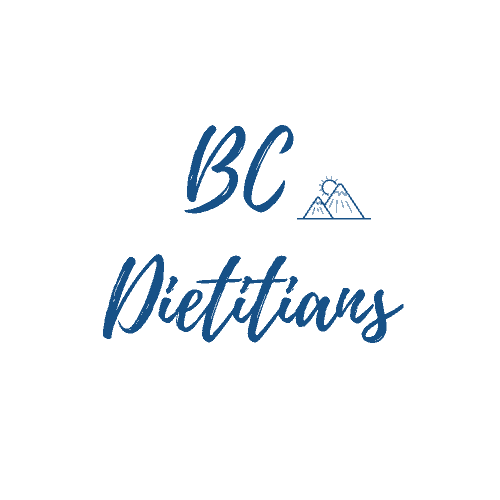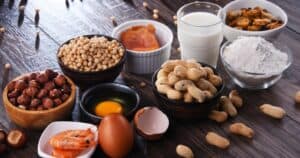You may have heard that people blame their weight gain due to their slowed metabolism after they turn 40, it is once thought that age is a major factor affecting our metabolism, but recent research suggests that our metabolism is relatively stable between 20 and 60 years old, with a decline from 60 years old. In other words, you can no longer blame age for affecting your metabolism; instead, your food choices and lifestyle factors may affect your rate of metabolism.
Some people also note that their high metabolism prevents them from gaining weight. Either way, metabolism is more than about gaining and losing weight; it is about how the body burns calories from the food we eat for energy.
Read on to find out how you can rev up your metabolism.

Which Foods Boost Metabolism?
1. Protein Foods
Your metabolic rate increases as your body digests the food you eat, but your body uses slightly more energy to break down protein than carbohydrates and fat. Protein are large molecules that will need time to break down into their building blocks of amino acids, helping you feel satisfied longer.
You can get protein from various sources, such as lean meat and poultry, seafood, as well as plant-based protein options such as nuts and seeds.
While there is no one specific food that may increase your metabolism, two protein-containing foods have been studied for their association with metabolism:
- Eggs — In addition to protein, eggs are a good source of riboflavin, a B vitamin that plays a role in metabolism. This meat alternative is also one of the few foods with vitamin D, a fat-soluble vitamin that supports metabolism.
- Legumes — Legumes such as beans and lentils are loaded with protein and dietary fiber, which may require more energy to digest than refined grains. One study that reviewed over 20 clinical trials revealed that eating ¾ cup of beans or legumes could lead to half a pound of weight loss in six weeks. While this amount may not be significant, including beans and legumes in your meal pattern may help you feel full longer and less likely to overeat.
You will need at least 0.8 grams of protein per kilogram of body weight per day. For example, if you weigh 60 kilograms, you will need at least 48 grams of protein each day to maintain your current rate of metabolism.
The amount of protein you need is dependent on many factors, such as your age, activity level, overall health and more. Calculate your optimal protein intake based on your health and physique goals.
2. Whole Grains
Whole grains are not only packed with starch-filled carbohydrates that give you energy; they are also rich in fiber that fills you up. Interestingly, swapping out refined grains, where both the bran with fiber and the germ with protein are removed during the milling process, for whole grains may result in a slight increase in metabolism. This occurrence could be due to the body needing to use more energy to digest whole grains.
Canada’s food guide also recommends filling your plate up with one-quarter of whole grains, such as wild rice, quinoa and whole-grain cereals prepared with little to no added salt, sugar or saturated fat, to maintain good health.
3. Water
Water is an essential fluid for metabolism, but drinking it may also increase your metabolism. One study found that drinking 2 cups (500mL) of water increased metabolic rate by 30% in both men and women. Another study noted similar results in overweight children, whose basal metabolic rate (the energy your body uses at rest) increased up to 25% after drinking 10mL per kilogram of body weight water.
While water’s role in increasing metabolism remains questionable, drinking water helps quench your thirst and keeps you hydrated. You may also be less tempted to reach for sweetened beverages.
The amount of fluid you need is dependent on several factors, including your gender, activity level, climate and what you eat. The general recommendation is to aim for at least 9 to 10.5 cups of fluids per day.
How to Increase Metabolism Through Exercise
Aerobic Exercise
Engaging in aerobic exercise helps rev up your metabolism in the short term by burning calories. One study also found that one may further increase metabolism when they combine exercise with a protein-rich diet.
Nevertheless, exercising offers more than a boost to your energy level; it keeps your heart healthy, uplifts your mood, promotes better sleep and more. Start with low-intensity activity, such as walking and gradually work your way to a moderately-intense activity, like brisk walking and eventually towards high-intensity exercises such as jogging, spinning and swimming, for at least 150 minutes each week.
Build muscle
You may also want to work towards building muscles in the long run, to keep your metabolism up because muscles burn more calories than fat. To boost your metabolism, build muscle mass by doing strengthening exercises, such as weight lifting at least twice a week.
Connect with one of our sports dietitians to create a customized exercise plan to align with your nutrition goals.
Get enough sleep
You may be surprised to learn that sleep impacts your metabolism. When you sleep, especially in REM sleep, the deepest stage of sleep, your body builds and repairs muscles and cells. Lacking quality sleep long-term may lead to an increased risk of losing muscle mass. Some studies also suggest that long-term sleep deprivation may contribute to energy imbalance, insulin resistance, inflammation, heart disease risk and other chronic health conditions.
Having a good night of sleep of 7 to 9 hours leaves you feeling energized in the morning. As a result, you may make wiser food and lifestyle choices, such as less mindless snacking and engaging in regular exercise. Interestingly enough, sleep and exercise are related to each other; exercise improves your sleep quality and sleeping well may influence you to engage in higher amounts of physical activity, which has been shown to increase metabolism.
Get matched with a BC dietitian nutritionist for your personalized nutrition plan today!
References:
- Canada’s food guide: Make it a habit to eat vegetables, fruits, whole grains and protein foods. https://food-guide.canada.ca/en/healthy-eating-recommendations/make-it-a-habit-to-eat-vegetables-fruit-whole-grains-and-protein-foods/. Accessed on March. 26, 2022.
- Canada’s food guide: Make water your drink of choice. https://food-guide.canada.ca/en/healthy-eating-recommendations/make-water-your-drink-of-choice/. Accessed on March 26, 2022.
- Canadian 24-Hour Movement Guidelines for Adults aged 18-64 years: An Integration of Physical Activity, Sedentary Behaviour, and Sleep. https://csepguidelines.ca/guidelines/adults-18-64/. Accessed on March 30, 2022.
- Daily energy expenditure through the human life course. https://www.science.org/doi/10.1126/science.abe5017. Accessed on March 26, 2022.
- Effects of dietary pulse consumption on body weight: a systematic review and meta-analysis of randomized controlled trials. https://academic.oup.com/ajcn/article/103/5/1213/4569588. Accessed on March 30, 2022.
- Effect of sleep duration on dietary intake, desire to eat, measures of food intake and metabolic hormones: A systematic review of clinical trials. https://pubmed.ncbi.nlm.nih.gov/34620371/. Accessed on March 30, 2022.
- Facts on Fluids – How to Stay Hydrated. https://www.unlockfood.ca/en/articles/water/facts-on-fluids-how-to-stay-hydrated.aspx. Accessed on March 30, 2022.
- Influence of water drinking on resting energy expenditure in overweight children. https://pubmed.ncbi.nlm.nih.gov/21750519/. Accessed on March 30, 2022.
- Interrelationship between Sleep and Exercise: A Systematic Review. https://www.ncbi.nlm.nih.gov/pmc/articles/PMC5385214/. Accessed on March 30, 2022.
- Quick Nutrition Check for Protein. https://www.healthlinkbc.ca/healthy-eating-physical-activity/food-and-nutrition/nutrients/quick-nutrition-check-protein. Accessed on March 30, 2022.
- Sleep and Your Health. https://www.healthlinkbc.ca/illnesses-conditions/fatigue-and-sleep/sleep-and-your-health. Accessed on March 30, 2022.
- Sleep, Muscle Mass and Muscle Function in Older People. https://pubmed.ncbi.nlm.nih.gov/27151463/. Accessed on March 30, 2022.
- Substituting whole grains for refined grains in a 6-wk randomized trial favorably affects energy-balance metrics in healthy men and postmenopausal women. https://www.ncbi.nlm.nih.gov/pmc/articles/PMC5320410/. Accessed on March 26, 2022.
- The effect of acute sleep deprivation on skeletal muscle protein synthesis and the hormonal environment. https://www.ncbi.nlm.nih.gov/pmc/articles/PMC7785053/. Accessed on March 30, 2022.
- The role of protein in weight loss and maintenance. https://academic.oup.com/ajcn/article/101/6/1320S/4564492?login=true. Accessed on March 30, 2022.
- The Thermic Effect of Food: A Review. https://www.researchgate.net/publication/332668404_The_Thermic_Effect_of_Food_A_Review. Accessed on March 26, 2022.
- Thermic effect of food, exercise, and total energy expenditure in active females. https://pubmed.ncbi.nlm.nih.gov/24589371/. Accessed on March 30, 2022.
- Vitamins: Their Functions and Sources. https://www.healthlinkbc.ca/healthy-eating-physical-activity/food-and-nutrition/nutrients/vitamins-their-functions-and-sources. Accessed on March 26, 2022.
- Vitamin D: Fact Sheet for Health Professionals. https://ods.od.nih.gov/factsheets/VitaminD-HealthProfessional/. Accessed March 30, 2022.
- Water-induced thermogenesis. https://pubmed.ncbi.nlm.nih.gov/14671205/. Accessed March 30, 2022.
- Water Intake, Water Balance, and the Elusive Daily Water Requirement. https://www.ncbi.nlm.nih.gov/pmc/articles/PMC6315424/. Accessed March 26, 2022.








Add a comment